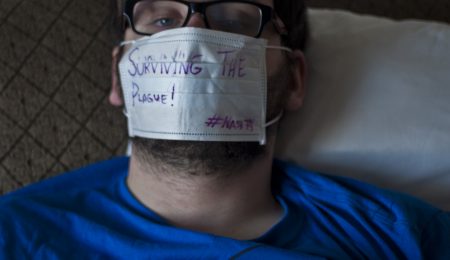MTV CANADA’S NEWEST show, Creeps, premiered on Jan. 5 at 11 p.m.. During the half-hour episode, three individuals had their Facebook profiles and Twitter accounts critiqued by a panel of judges. The people behind the online accounts appear on the show to answer the judges’ questions about their unusual profiles. At the end of the half hour, the judges decide to add one person to join them on the panel next week, ignore one person, and recommend that one person’s friends remove them.
While a show titled Creeps might raise questions about privacy and social media use, Lauren O’Neil, one of the show’s judges, largely rejected those concerns in an email to the Fulcrum.
“Few things on the Internet are ever really ‘private’, which is why it’s crucial to always think before posting,” says O’Neil. “That said, there’s nothing from a profile shown on Creeps that an average person with a computer couldn’t go and look at themselves. These are all real people with real—and sometimes shockingly public—online lives.”
Michael Strangelove, a professor of communications at the University of Ottawa, also noted that showing people’s social media profiles on TV isn’t a privacy issue, as online profiles are, by nature, far from private.
“If you feel creeped out by the fact that other people are looking at you, it’s probably because you’re too young to realize that you’re already in public,” he says.
Of more concern to Strangelove is how MTV’s Creeps selects and portrays individuals and their profiles.
“We keep reducing things down to these issues of privacy or this or that and the other when we’re looking at these shows, but it’s a much more fundamental question of the way the commercial media twists and warps our perspective of each other.”
Strangelove believes many of the people we see on reality shows such as Creeps are not fair reflections of viewing audiences.
A good example of this is Mike Zancai, one of the individuals who had his profile critiqued in the series premiere, whose Facebook profile contains nude pictures of himself and often offensive status updates.
“We’re looking at a highly constructed reality when we turn on the television, a shiny, glossy, hyper-real version of ourselves,” explains Strangelove. “These men and women, do they represent me or you? They might represent a tiny minority of us.”
Although it may be said that Creeps contributes to a rise in self-promotion and online voyeurism, O’Neil explained for many young adults, this experience is just a normal part of everyday life.
“We grew up in an age of reality television and YouTube stars, where ‘normal people’ become very, very famous all the time for doing little more than living their lives in public,” says O’Neil.
O’Neil believes Creeps gets a positive message across to viewers.
“Behind every Facebook profile is a real human with real problems and feelings and hopes just like you or [me],” states O’Neil.
“If anything, I hope the show encourages people to keep an open mind and be kind in their creepage. Things are not always as they seem.”
MTV’s Creeps airs Thursdays at 11 p.m. on MTV Canada.
—Keeton Wilcock



